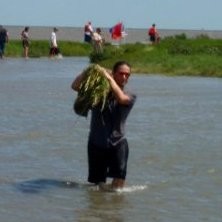
Marianne K. Ring
- Courses3
- Reviews4
- School: Governors State University
- Campus:
- Department: Criminal Justice
- Email address: Join to see
- Phone: Join to see
-
Location:
1 University Pkwy
University Park, IL - 60484 - Dates at Governors State University: May 2014 - December 2018
- Office Hours: Join to see
Biography
Governors State University - Criminal Justice
Resume
2018
Call Record Analysis
Level 2 - GeoTime
Uncharted Software
Call Record Analysis
Level 1 - GeoTime
Geographic Information Systems
2012
Bachelor of Science (B.S.)
Criminal Justice/Law Enforcement Administration
Southeast Missouri State University
University of Illinois at Chicago
Ph.D. (a.b.d.)
Assisted students in the undergraduate Criminal Justice Society
Attended and presented at professional conferences in the U.S. and Canada
Assisted in grant writing
Joint authorship on published policing paper
Criminology and Law & Society
Research assistant at the Institute for Public Safety Partnerships and the Center for Research in Law & Justice.
The University of Memphis
Master of Arts (M.A.)
Research assistant for Memphis Area Neighborhood Watch.
Criminology & Criminal Justice
Graduate Certificate
Geographic Information Systems
Northeastern Illinois University
2003
Rehabilitation Institute of Chicago
University of Illinois at Chicago
Governors State University
City of Evanston
Chicago
IL
Project Manager
Rehabilitation Institute of Chicago
Evanston
IL
Collect
analyze and develop intelligence and strategic reports for command staff at the Evanston Police Department. Use a variety of analytic software
including ArcMap
Microsoft Excel
and Crystal Reports. Network with police officers
corrections personnel
and other persons involved in the criminal justice system throughout the state of Illinois. Is the Evanston Police Department's manager for ViCAP (FBI's Violent Criminal Apprehension Program).
Management Analyst - Crime Analyst
City of Evanston
Chicago
IL
Developed a core course: policing and society.
Adjunct Faculty
University of Illinois at Chicago
Evanston
Illinois
Worked with the command staff on day-to-day crime analysis\nProvided crime maps and analysis for weekly deployment meeting\nLiaised with area police departments
sharing crime information\nWorked with the community on crime prevention efforts
Crime Analyst
City of Evanston
University Park
IL
Developed both core and elective courses. Instructed and developed online courses. Mentored students in seeking internship and employment opportunities.
Adjunct Faculty
Governors State University
Evanston
Illinois
Provided information on current crime analysis trends and the utility of crime analysis in modern policing. Assisted in developing a criminal intelligence unit. Provided command staff with easy to use administrative forms.
Crime Analyst - Consultant
City of Evanston
Vice President of Administration (2015-current)
Vice President
Illinois Association of Crime Analysts
member
International Association of Crime Analysts
Represent parents on the preschool board. Assist in fundraising efforts.
St. Gregory's Preschool
Data Analysis
Policy
Public Administration
Leadership
Government
Crime Prevention
Grant Writing
Homeland Security
Proposal Writing
Public Safety
Crime Analysis
Police
Training
Enforcement
Policy Analysis
Public Speaking
Community Outreach
Criminal Justice
Local Government
Report Writing
Attitudes Toward the Police: The Effects of Direct and Vicarious Experience
Darnell Hawkins
Sandra K. Costello
Researchers have emphasized the importance of direct encounters with the police as a determinant of attitudes toward the police
yet cross-sectional studies allow for limited causal inference. This study includes the measurement of attitudes before and after encounters with the police among African American
Hispanic
and White residents of Chicago. Contrary to previous research
direct contact with the police during the past year is not enough to change attitudes
but vicarious experience (i.e.
learning that someone else has had a good or bad encounter with the police) does influence attitudes in a predictable manner. Also
residents’ initial attitudes about the police play a critical role in shaping their judgments of subsequent direct and indirect experiences as well as their future attitudes. The findings are discussed in terms of stereotypes about the police that are resistant to change.
Attitudes Toward the Police: The Effects of Direct and Vicarious Experience
Marianne
Ring


